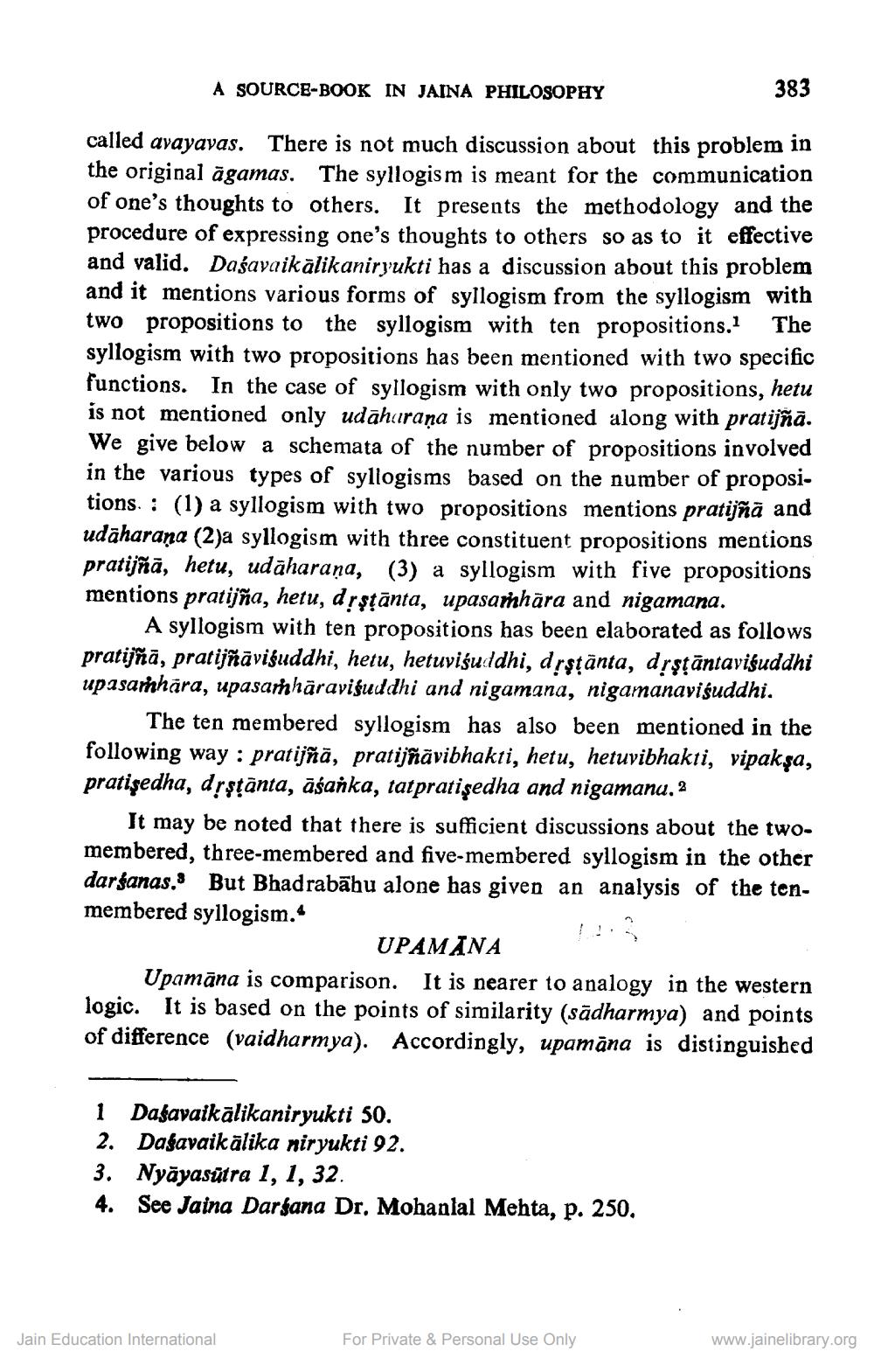________________
383
called avayavas. There is not much discussion about this problem in the original agamas. The syllogism is meant for the communication of one's thoughts to others. It presents the methodology and the procedure of expressing one's thoughts to others so as to it effective and valid. Daśavaikālikaniryukti has a discussion about this problem and it mentions various forms of syllogism from the syllogism with two propositions to the syllogism with ten propositions.1 The syllogism with two propositions has been mentioned with two specific functions. In the case of syllogism with only two propositions, hetu is not mentioned only udaharana is mentioned along with pratijñā. We give below a schemata of the number of propositions involved in the various types of syllogisms based on the number of propositions. (1) a syllogism with two propositions mentions pratijñā and udāharaṇa (2)a syllogism with three constituent propositions mentions pratijñā, hetu, udaharaṇa, (3) a syllogism with five propositions mentions pratijña, hetu, dṛṣṭānta, upasaṁhāra and nigamana.
A syllogism with ten propositions has been elaborated as follows pratijñā, pratijñāvi§uddhi, hetu, hetuviśuddhi, dṛṣṭānta, dṛṣṭāntaviśuddhi upasaṁhāra, upasaṁhāravi§uddhi and nigamana, nigamanaviśuddhi.
A SOURCE-BOOK IN JAINA PHILOSOPHY
The ten membered syllogism has also been mentioned in the following way: pratijñā, pratijñāvibhakti, hetu, hetuvibhakti, vipakşa, pratisedha, dṛṣṭānta, āśanka, tatpratişedha and nigamana, 2
It may be noted that there is sufficient discussions about the twomembered, three-membered and five-membered syllogism in the other darśanas. But Bhadrabahu alone has given an analysis of the tenmembered syllogism."
2.3
UPAMANA
Upamāna is comparison. It is nearer to analogy in the western logic. It is based on the points of similarity (sādharmya) and points of difference (vaidharmya). Accordingly, upamāna is distinguished
1 Dajavaikālikaniryukti 50.
2. Dasavaikaälika niryukti 92.
3. Nyāyasūtra 1, 1, 32.
4. See Jaina Darsana Dr. Mohanlal Mehta, p. 250.
Jain Education International
For Private & Personal Use Only
www.jainelibrary.org




